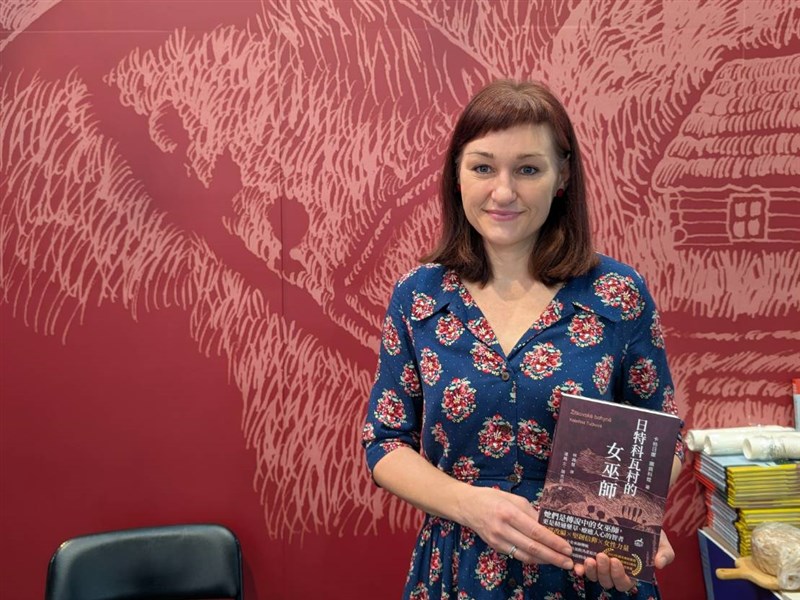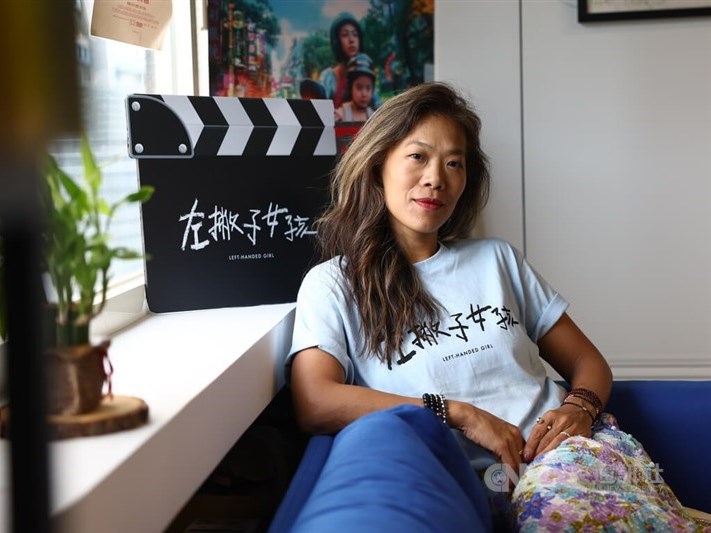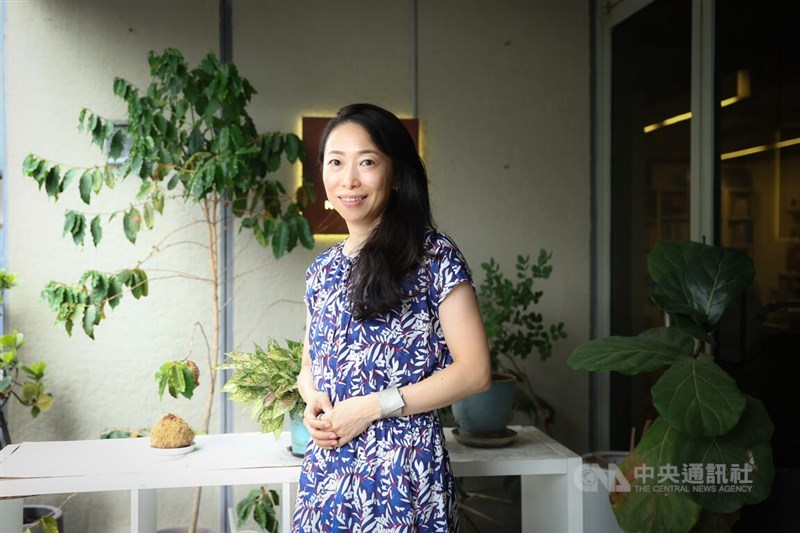
By Chao Yen-hsiang, CNA staff writer
Tae Hitoto (一青妙), a descendant of the Keelung-based Yen (顏) family -- one of the five most powerful families in Japanese colonial Taiwan (1895-1945) -- appears destined to remain connected to the island.
But for the daughter of a Taiwanese father and a Japanese mother, that bond was not inherited -- it had to be actively rebuilt.
Born in Taipei in 1970, Hitoto immigrated to Japan at 11. Her connection to Taiwan faded further after her father died three years later. It was not until the 2012 publication of her first book, "Box My Child" (我的箱子), a nonfiction account of her father, that her Taiwanese identity began to emerge.
"Readers were surprised to learn about my father and were curious about how I identify," she recalled.
The belated realization of the significance of her paternal connection to Taiwan drove Hitoto to delve into her family's history. As of 2024, Hitoto had written two nonfiction books and four travel books, all of which spotlight Taiwan.
Her first novel, "The Blue Flower" (青色之花), represents her latest effort to get closer to her father. Though composed in Japanese, the novel was first published in Taiwan in July in a Chinese translation, with its Japanese edition scheduled for release in 2026.
In a recent interview with CNA, Hitoto spoke about what drove her to write about Taiwan, her mental journey in search of lost time, and her commitment to bridging Taiwan and Japan.
'My father, my nostalgia'
Hitoto's novel follows three women who discover photos of their deceased fathers and embark on a journey to uncover their family histories.
Along the way, they uncover stories from the White Terror, a period of authoritarian rule and political repression in Taiwan from 1949 to 1992 that resulted in the death of tens of thousands of innocent people.
The plot, Hitoto said, was based on her study of her family's past. Each of the six major characters has a real-life model, with two being the author herself and her father.
"To me, writing always serves as my way to build my connection with Taiwan, and my connection with Taiwan is my dad," Hitoto said.
In 2009, while preparing to rebuild their family home in Tokyo, Hitoto discovered a box of her father's belongings. The collection -- including photos, notes, and a diary containing the phrase "the thing that cannot be told" -- first made her aware of his Taiwanese roots.
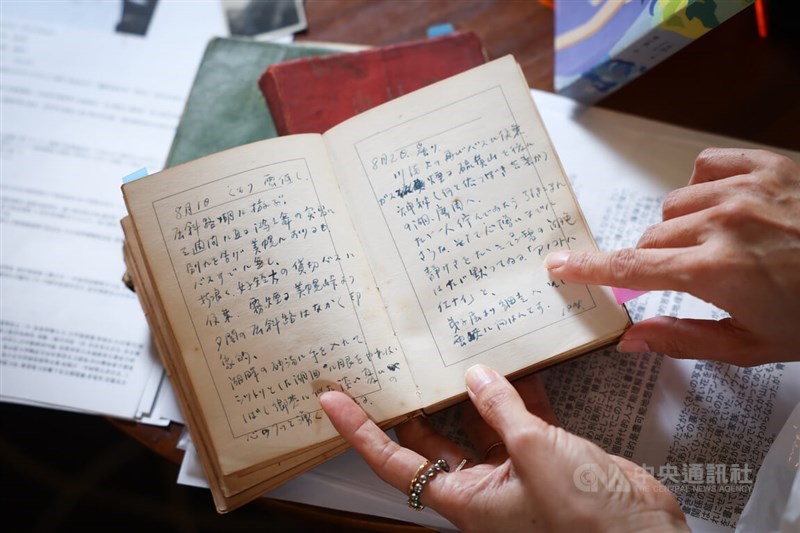
In a 2017 article, Hitoto wrote about her family's decline in the advent of the Kuomintang government and revealed that her grandfather and an uncle were captured and released. She believes this happened on the condition that the family turn over most of their land -- over 60,000 pings (198,348 square meters) -- to the government.
According to Hitoto, her father had studied in Japan but returned to Taiwan following the outbreak of the 228 Incident in 1947, which ushered in the White Terror period, and sneaked back to Japan two years later.
"I was too young when he died, so I never got to have deep talks with him and he left very few clues," she said.
"I began making an effort to learn more about my father when I discovered the box."
Hitoto said the novel's title comes from a Romantic symbol representing the quest for unattainable ideals. She found the reference on the back of one of her father's photos and wove it into the novel as a recurring theme.
"What I want to figure out is what my parents underwent at that time -- their thoughts and suffering -- and to relive each of those days. I want to portray them in flesh and blood," she wrote in the novel's afterword.
Pleasure under pressure
As she delved into her family history, Hitoto said the task felt urgent because traces of her father's generation have either disappeared or are about to.
"It didn't feel like that in 2017 because I could still contact my father's classmates. As they started to die, I realized people from that generation have little time left," she said, adding that one of her uncles had just passed away at the age of 96.
Heavy as the past could be, Hitoto said she enjoyed the process of excavating her family history and felt "proud to learn of the Yen family's glorious past."
"There may be negative and saddening aspects, and I hope those stories are not covered up or silenced," she said. "Only by confronting the pain and grief of those before us can we understand Taiwan today."
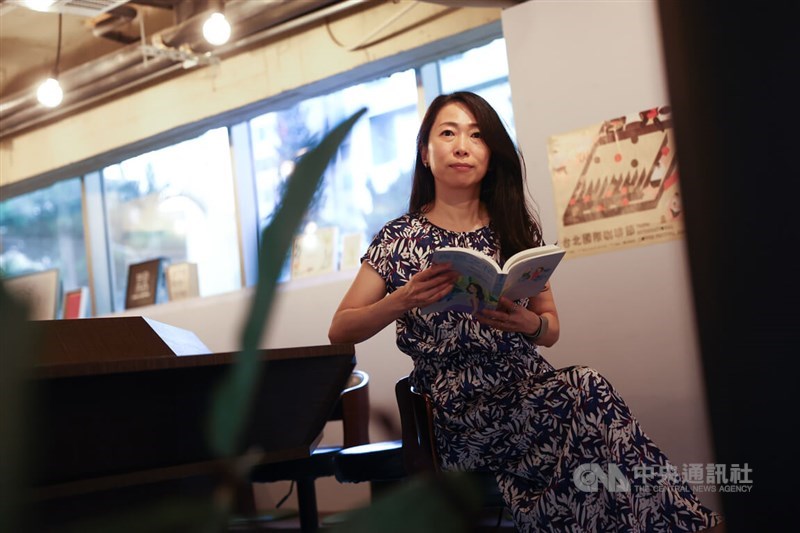
A bridge to the future
Hitoto's exploration of her father's roots has made her dedicated to promoting cultural exchange between Taiwan and Japan. She has served as a goodwill ambassador for Tainan five times, where she found her memories of the country in the 1970s and 1980s finely preserved.
Hitoto said her main target audience is Japanese readers, and she hopes they can learn more about Taiwanese history through her work.
"It's a story not just about my family, but also about all Taiwanese families. That's why I want to write it and have it published," she said.
Enditem/kb
-
![Czech author reflects on cultural erasure under authoritarian rule]() Czech author reflects on cultural erasure under authoritarian ruleWhen best-selling Czech author Kateřina Tučková was in Taiwan earlier this month to promote the Chinese version of her novel "The Last Goddess," she said she felt the story would resonate with Taiwanese readers because of a common authoritarian past.02/22/2026 04:35 PM
Czech author reflects on cultural erasure under authoritarian ruleWhen best-selling Czech author Kateřina Tučková was in Taiwan earlier this month to promote the Chinese version of her novel "The Last Goddess," she said she felt the story would resonate with Taiwanese readers because of a common authoritarian past.02/22/2026 04:35 PM -
![Director Tsou Shih-ching challenges gender norms in 'Left-Handed Girl']() Director Tsou Shih-ching challenges gender norms in 'Left-Handed Girl'Superstitions passed down through generations can shape people's lives in subtle yet lasting ways. In her debut solo feature film "Left-Handed Girl" (左撇子女孩), director Tsou Shih-ching (鄒時擎) uses one such belief to examine gender roles and social expectations imposed on women in Taiwanese society.02/22/2026 11:04 AM
Director Tsou Shih-ching challenges gender norms in 'Left-Handed Girl'Superstitions passed down through generations can shape people's lives in subtle yet lasting ways. In her debut solo feature film "Left-Handed Girl" (左撇子女孩), director Tsou Shih-ching (鄒時擎) uses one such belief to examine gender roles and social expectations imposed on women in Taiwanese society.02/22/2026 11:04 AM -
![Philippines envoy urges crackdown on 'bad brokers,' backs direct hiring center plan]() Philippines envoy urges crackdown on 'bad brokers,' backs direct hiring center planThe Philippines' top envoy to Taiwan said authorities on both sides should crack down on unscrupulous brokers who overcharge migrant workers, and welcomed Taiwan's plan to open its first overseas direct recruitment center in Manila as a way to foster competition.02/17/2026 02:48 PM
Philippines envoy urges crackdown on 'bad brokers,' backs direct hiring center planThe Philippines' top envoy to Taiwan said authorities on both sides should crack down on unscrupulous brokers who overcharge migrant workers, and welcomed Taiwan's plan to open its first overseas direct recruitment center in Manila as a way to foster competition.02/17/2026 02:48 PM
-
Society
3-month-old boy youngest severe flu case this season: Taiwan CDC
02/24/2026 06:18 PM -
Society
One worker critical in Minquan Bridge construction accident
02/24/2026 06:03 PM -
Cross-Strait
Lai reiterates 'status quo' at China-based Taiwanese event
02/24/2026 05:37 PM -
Society
Total lunar eclipse greets Lantern Festival on March 3: CWA
02/24/2026 05:13 PM -
Politics
Political parties agree to send special defense bill to committee
02/24/2026 04:24 PM
